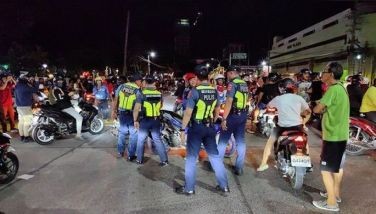The national anthem’s “rape’ by the Tagalogs commissioned by President Magsaysay
(Last of Four Parts)
Cebu has its version of our national anthem, translated by the esteemed Cebuano and English writer, Jess Vestil, Dean of Cebuano Anchors. The version correctly did not carry the title of the “1956 Tagalog translation” Lupang Hinirang, which was a far-fetched translation and desecration of the title of the “Marcha Filipina Magdalo” and “Filipinas” which was the title of the poem written by Jose Palma in 1899 to serve as its lyrics.
Cebu and the rest of the provinces are prohibited from singing their own versions as Republic Act 8491 enacted on February 12, 1998 mandates that in all ceremonies, the national anthem must be sung in Tagalog. This is an imposition of Imperial Manila, bullying the provinces that our national anthem, which was originally written in Spanish by national hero Jose Palma, must only be sung in Tagalog.
CEBUpedia challenges the officials of Cebu to defy this law. Anyway it only metes the penalty of imprisonment of not more than 1 year or/and fine of not less than P5,000 pesos but not more than P20,000, a far cry from the blood spilled and offered by the Cebuano patriots when they drove the Spaniards out of Cebu. The Cebuano version of the national anthem must be played before the start of any ceremony or competition.
Republic Act 8491 or the Flag and Heraldic Code of the Philippines must be revised and if there are those who cry that there must be charter change, to change the system of government from the time of inception in 1935 via the Tydings-McDuffie Law, why cannot we also must have the courage to revisit and correct an error of the past, specifically the text of our national anthem? Why would we allow ourselves to continue singing a distorted translation of our national anthem?
Those in the Palma Clan are not strangers to Visayas and Mindanao. We even have R. (Rafael) Palma St. in Cebu City to honor the brother of Jose Palma. The Palma brothers (Jose and Rafael) were the sons of Don Hermogenes Palma and Hilaria Velasquez of Tondo, Manila, but the clan spread. Cebu saw a lawyer, a namesake of Jose Palma, his name was Jose D. Palma of Calamba, Misamis Occidental.
He built a law office and a building along Archbishop Reyes Avenue and actively practiced in Cebu. His son, Jose Ismael Enrique C. Palma Jr., of the Ateneo de Manila, became a lawyer on June 1, 1987 and became Professor of the College of Law of the University of San Jose-Recoletos.
- Latest




















